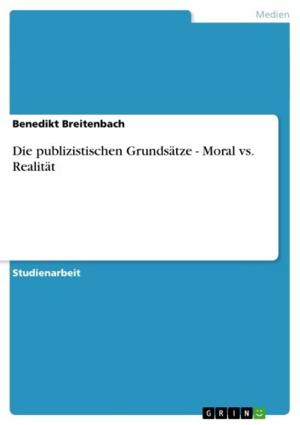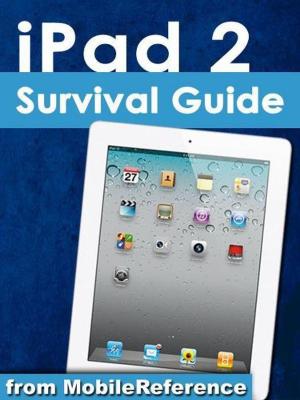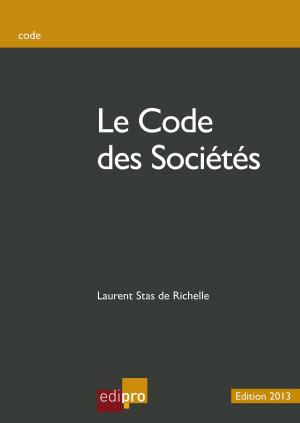Playbook: The Basics of Writing for Bleacher Report
Nonfiction, Reference & Language, Language Arts, Writing & Publishing, Publishing, Writing Skills, Reference| Author: | King Kaufman | ISBN: | 9781310752797 |
| Publisher: | King Kaufman | Publication: | November 17, 2013 |
| Imprint: | Smashwords Edition | Language: | English |
| Author: | King Kaufman |
| ISBN: | 9781310752797 |
| Publisher: | King Kaufman |
| Publication: | November 17, 2013 |
| Imprint: | Smashwords Edition |
| Language: | English |
Bleacher Report is a meritocracy. The best writers get rewarded.
But what does "best" really mean? How do editors judge the quality of the writing on one of the most successful and respected English-language sports websites in the world?
One key tool is the objective evaluation system used by B/R's Quality Control Team. Editors use this system to judge whether Bleacher Report writers have mastered the basics of B/R sportswriting, and where they need to shore up their skills if they haven't.
"Objective" might sound like a strange word to use because we all know that writing is an art form. But just as we can evaluate whether a musician hits the notes correctly or is playing in the right key, there are some things within the art of sportswriting that we can judge objectively.
"Playbook" is a guide to mastering those things. In pedagogical terms, "Playbook" is teaching to the test.
By rationalizing the way we review writing performance and provide feedback, we hope to give B/R writers a clear picture of what we're looking for. In other words, we don't want you to learn about the evaluation system so you can score brownie points with evaluators. We want you to use its concepts because they will help you build a loyal audience for your writing.
And we believe that mastering the concepts in this book will help your online writing, wherever you publish and whatever the subject matter.
This isn't just theory. We've tested it. We've seen the results since the evaluation system went into effect in the fall of 2012. We've seen across-the-board improvement from writers who have engaged with the feedback that's based on the system. Their pieces get flagged less often for Content Standards violations, and are programmed on the B/R front page and in other prominent slots—the Team Stream app, CNN.com, etc.—more often.
That means editors using subjective criteria—their own news judgment—are determining that those writers' stories are good enough for high placement more often.
Having said all that, there are limits to what this type of evaluation system can do. Writing really is an art form, and while an objective evaluation can judge things like grammar, diction, story organization and adherence to B/R style, it can't judge things like how well you know your subject, how funny or profound you are or whether your prose really sings.
That requires a human touch. Bleacher Report has that too. It's outside the scope of "Playbook."
"Playbook" is about the basics, about separating the good from the not-there-yet, and helping the latter group make the leap to the former. Mastering the book's concepts is a prerequisite to becoming an outstanding online writer, but it's only a first step.
Once you've built that foundation—which, again, will benefit your writing wherever you go—your long-term prospects will depend on the kind of nuanced intangibles that are better judged by more subjective methods. "Playbook" can get you into that game.
Bleacher Report is a meritocracy. The best writers get rewarded.
But what does "best" really mean? How do editors judge the quality of the writing on one of the most successful and respected English-language sports websites in the world?
One key tool is the objective evaluation system used by B/R's Quality Control Team. Editors use this system to judge whether Bleacher Report writers have mastered the basics of B/R sportswriting, and where they need to shore up their skills if they haven't.
"Objective" might sound like a strange word to use because we all know that writing is an art form. But just as we can evaluate whether a musician hits the notes correctly or is playing in the right key, there are some things within the art of sportswriting that we can judge objectively.
"Playbook" is a guide to mastering those things. In pedagogical terms, "Playbook" is teaching to the test.
By rationalizing the way we review writing performance and provide feedback, we hope to give B/R writers a clear picture of what we're looking for. In other words, we don't want you to learn about the evaluation system so you can score brownie points with evaluators. We want you to use its concepts because they will help you build a loyal audience for your writing.
And we believe that mastering the concepts in this book will help your online writing, wherever you publish and whatever the subject matter.
This isn't just theory. We've tested it. We've seen the results since the evaluation system went into effect in the fall of 2012. We've seen across-the-board improvement from writers who have engaged with the feedback that's based on the system. Their pieces get flagged less often for Content Standards violations, and are programmed on the B/R front page and in other prominent slots—the Team Stream app, CNN.com, etc.—more often.
That means editors using subjective criteria—their own news judgment—are determining that those writers' stories are good enough for high placement more often.
Having said all that, there are limits to what this type of evaluation system can do. Writing really is an art form, and while an objective evaluation can judge things like grammar, diction, story organization and adherence to B/R style, it can't judge things like how well you know your subject, how funny or profound you are or whether your prose really sings.
That requires a human touch. Bleacher Report has that too. It's outside the scope of "Playbook."
"Playbook" is about the basics, about separating the good from the not-there-yet, and helping the latter group make the leap to the former. Mastering the book's concepts is a prerequisite to becoming an outstanding online writer, but it's only a first step.
Once you've built that foundation—which, again, will benefit your writing wherever you go—your long-term prospects will depend on the kind of nuanced intangibles that are better judged by more subjective methods. "Playbook" can get you into that game.















